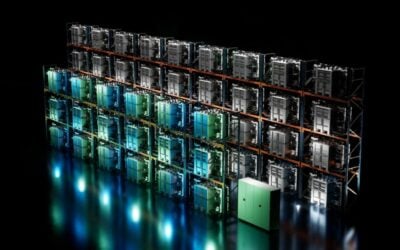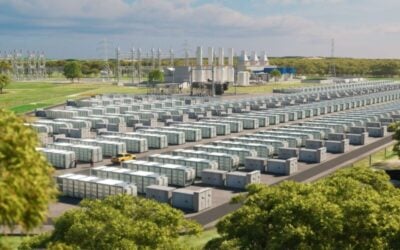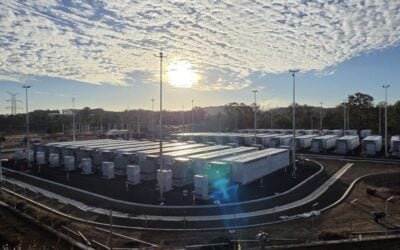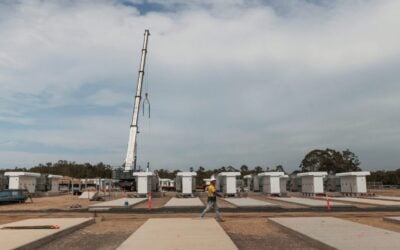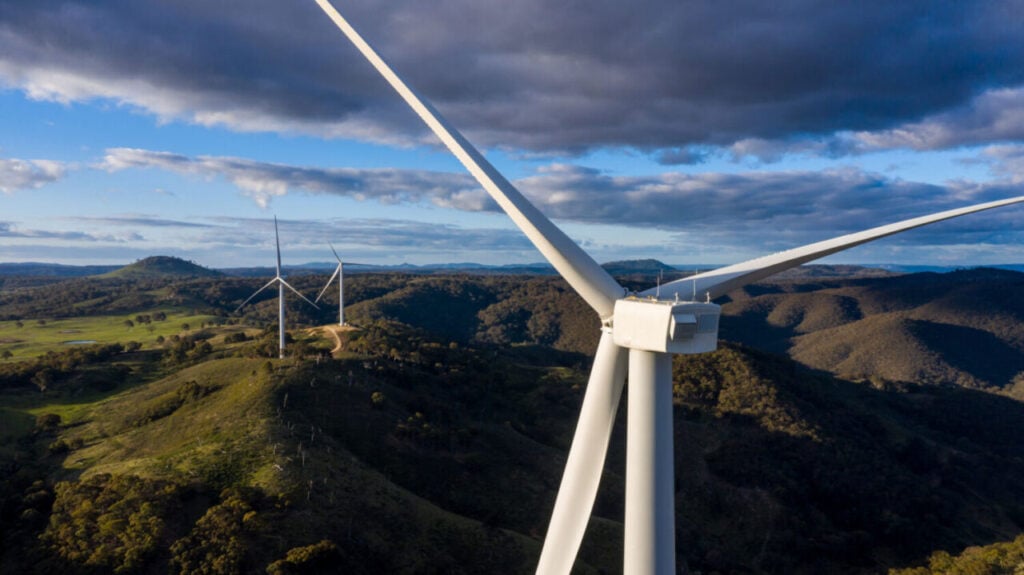
Developer Squadron Energy is seeking to build an 8-hour duration 1,200MWh battery energy storage system (BESS) in New South Wales, Australia, co-located with a 300MW wind project.
The proposed Conargo Wind Farm is located 45km northeast of Deniliquin and 10km northeast of Conargo, within the New South Wales South West Renewable Energy Zone (REZ). It will consist of approximately 53 wind turbines with an expected capacity of 300MW. The BESS will be connected to the National Electricity Market (NEM).
The company has submitted the development application to the Federal government under the Environment Protection and Biodiversity Conservation (EPBC) Act.
According to Squadron Energy, a range of battery technologies are under consideration, including lithium-ion, flow (vanadium, iron chloride, or zinc), and compressed air mechanical energy storage. The Environmental Impact Statement (EIS) will reveal the decision on which technology as well as the exact location of the storage facility, the planning document said.
Try Premium for just $1
- Full premium access for the first month at only $1
- Converts to an annual rate after 30 days unless cancelled
- Cancel anytime during the trial period
Premium Benefits
- Expert industry analysis and interviews
- Digital access to PV Tech Power journal
- Exclusive event discounts
Or get the full Premium subscription right away
Or continue reading this article for free
Several approved energy storage projects are located within 50km of the project site. These include the 1.5GW Yanco Delta wind-plus-storage project, which Origin Energy acquired in April 2024. The site also includes plans for an 800MWh BESS.
Squadron Energy hopes to complete planning and approvals in 2026, with construction and commissioning to commence the following year. This phase will take around 24 months to complete.
Operation is anticipated to begin in 2028 or 2029, and the project’s operational lifespan is 30 years. At the end of this period, Squadron Energy will consider whether to re-permit, repower, or decommission the project.
Squadron Energy is also behind a 1,800MWh wind-plus-storage project in New South Wales, which the NSW Independent Planning Commission (IPCN) recently recommended for approval.
The site aims to couple a 700MW wind farm with a co-located 400MW/1,800MWh BESS. It is located west of Gulgong and northeast of Wellington in the Central-West Orana Renewable Energy Zone (REZ), which recently became the first to transition into the delivery phase.

